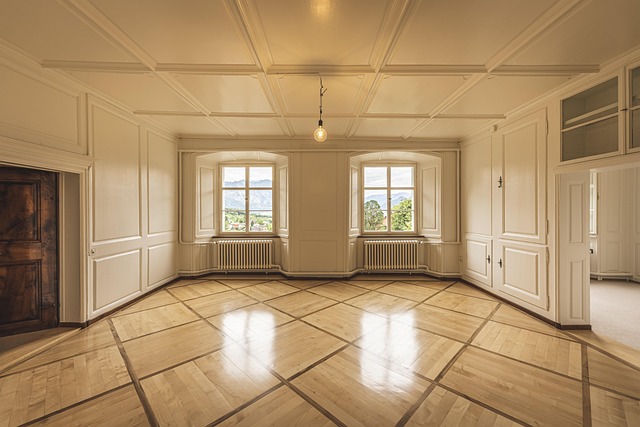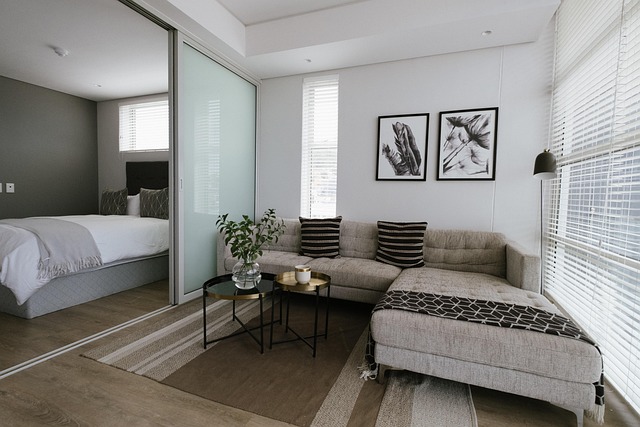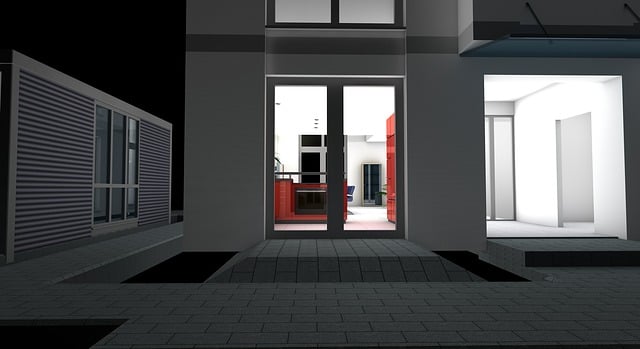Maintaining personal space in college is crucial for a positive experience, balancing academic demands with social lives. By prioritizing privacy, solitude, and autonomy in shared living spaces, students can recharge and manage stress. Effective communication, setting boundaries, and designating time for both socialization and solitary pursuits are key to harmonizing these aspects. College housing should be personalized yet respectful, with designated study zones, fostering a balanced environment. Utilizing campus resources and joining groups allows students to connect while preserving dedicated downtime, achieving a harmonious balance between social engagement and personal solitude.
In the vibrant, bustling college landscape, navigating personal space can be a game-changer. As students delve into their academic journeys, understanding and maintaining their own space becomes crucial for both mental health and academic performance. This article explores strategies for creating a comfortable living environment, balancing socialization with solitude, effective communication techniques, setting boundaries, and utilizing campus resources to ensure a successful college experience while navigating the complexities of shared spaces. Remember that in terms of personal growth, finding your zone is key to thriving in college.
- Understanding Personal Space: Why It Matters in College
- Balancing Socialization and Solitude: Finding Your Zone
- Creating a Comfortable Living Environment
- Effective Communication: Talking with Roommates and Friends
- Setting Boundaries: When and How to Say No
- Utilizing Available Resources: Support Systems on Campus
Understanding Personal Space: Why It Matters in College

Maintaining personal space is a crucial aspect of college life, especially as students strive to balance their social lives with academic responsibilities. College housing offers a unique environment where individuals are often living closely with peers for the first time. Understanding and prioritizing personal space can significantly contribute to a positive and healthy college experience.
Personal space is not merely about physical boundaries; it encompasses a sense of privacy, solitude, and autonomy. For students, this means creating a haven within their dorm room or apartment where they can retreat to study, relax, or simply be alone. Balancing social engagements with the need for personal space is essential for mental well-being. It allows individuals to recharge, manage stress, and maintain a healthy perspective as they navigate the vibrant yet demanding college landscape.
Balancing Socialization and Solitude: Finding Your Zone

In college, the allure of constant socialization can be overwhelming, especially in close-knit housing environments. While connecting with peers is vital for a fulfilling university experience, it’s equally important to strike a balance and carve out time for solitude. This isn’t about avoiding social interactions but rather establishing personal boundaries to maintain mental well-being and optimize your college years. Finding the right equilibrium means recognizing when to engage in vibrant conversations and when to retreat for some quiet reflection.
To achieve this, consider setting specific times for socializing—perhaps during the day or a few nights a week—and adhere to them. During these designated periods, embrace the joy of catching up with friends. However, ensure you also allocate regular blocks of time for solitary pursuits, such as reading, journaling, or simply relaxing in your space. This balance will not only enhance your academic performance but also foster deeper connections when you engage with others, as you’ll be more present and receptive to social interactions.
Creating a Comfortable Living Environment

Creating a comfortable living environment is essential for maintaining personal space in college housing, especially as students balance their social lives. This involves personalizing your space to reflect your preferences and creating boundaries that respect both your privacy and your roommates’. Start by adding touches that make your space feel unique—this could be through decor, photographs, or items that hold sentimental value. Ensure these additions don’t encroach on common areas, allowing for clear separation between shared and individual spaces.
Additionally, establish early conversations with your roommates about expectations around noise levels, cleanliness, and personal time. Setting boundaries openly and respectfully can foster a harmonious environment. Consider creating designated study or quiet zones within the living space to accommodate different needs, ensuring everyone has their own sanctuary where they can recharge and focus while balancing their social engagements.
Effective Communication: Talking with Roommates and Friends

Maintaining personal space while enjoying a vibrant social life can be challenging in college housing. Effective communication is key to achieving this balance. Start by having open and honest conversations with your roommates about expectations regarding privacy and shared spaces. Establish ground rules for when it’s okay to enter each other’s rooms, use common areas, and participate in group activities. Regularly check in with friends to discuss boundaries as well, ensuring everyone understands the importance of respecting personal space. This open dialogue can help foster a harmonious living environment where you can both socialize and enjoy moments of solitude when needed.
When navigating your social life, remember that setting boundaries is not about being unfriendly; it’s about defining healthy relationships. Encourage friends to respect your need for quiet study time or personal relaxation by communicating these desires clearly. Similarly, be mindful of their personal space and communication preferences. Balancing a rich social life with the maintenance of personal space requires empathy, understanding, and clear communication—all skills that will serve you well both during your college years and beyond.
Setting Boundaries: When and How to Say No

Maintaining personal space is an essential part of navigating college housing, especially when sharing a small living area with peers. One crucial aspect often overlooked in this process is setting healthy boundaries and learning to say no. It’s not about being rude or unfriendly; instead, it’s about understanding your limits and respecting others’.
When it comes to your personal space, you must communicate your needs assertively. Saying no when a roommate wants to stay up late playing video games or invite friends over constantly is not a sign of rudeness but rather an act of self-care. It involves finding a balance between socializing and having alone time, which is vital for maintaining mental health and overall well-being during the vibrant yet demanding college years. Learning to politely but firmly decline invitations can foster a healthier living environment, ensuring you get the rest and privacy you need while still enjoying your social life.
Utilizing Available Resources: Support Systems on Campus

In college, balancing a social life and maintaining personal space can feel like a tightrope walk. However, campuses often offer abundant resources designed to support students in just this situation. One of the first steps is to leverage the support systems available through student affairs or residential life departments. These offices typically provide counseling services, stress management workshops, and even mediation for roommate conflicts. Utilizing these resources can not only help students navigate the challenges of living in close quarters but also foster a healthier balance between social engagement and personal downtime.
On top of formal services, joining clubs, teams, or interest groups is an excellent way to connect with like-minded individuals while also carving out dedicated time for oneself. By participating in activities that align with personal passions, students can meet new friends outside their immediate living situation, further enriching their college experience without compromising on needed solitude. These extracurriculars offer a structured yet flexible environment where one can both contribute and retreat, thereby facilitating a harmonious balance between social life and personal space.
